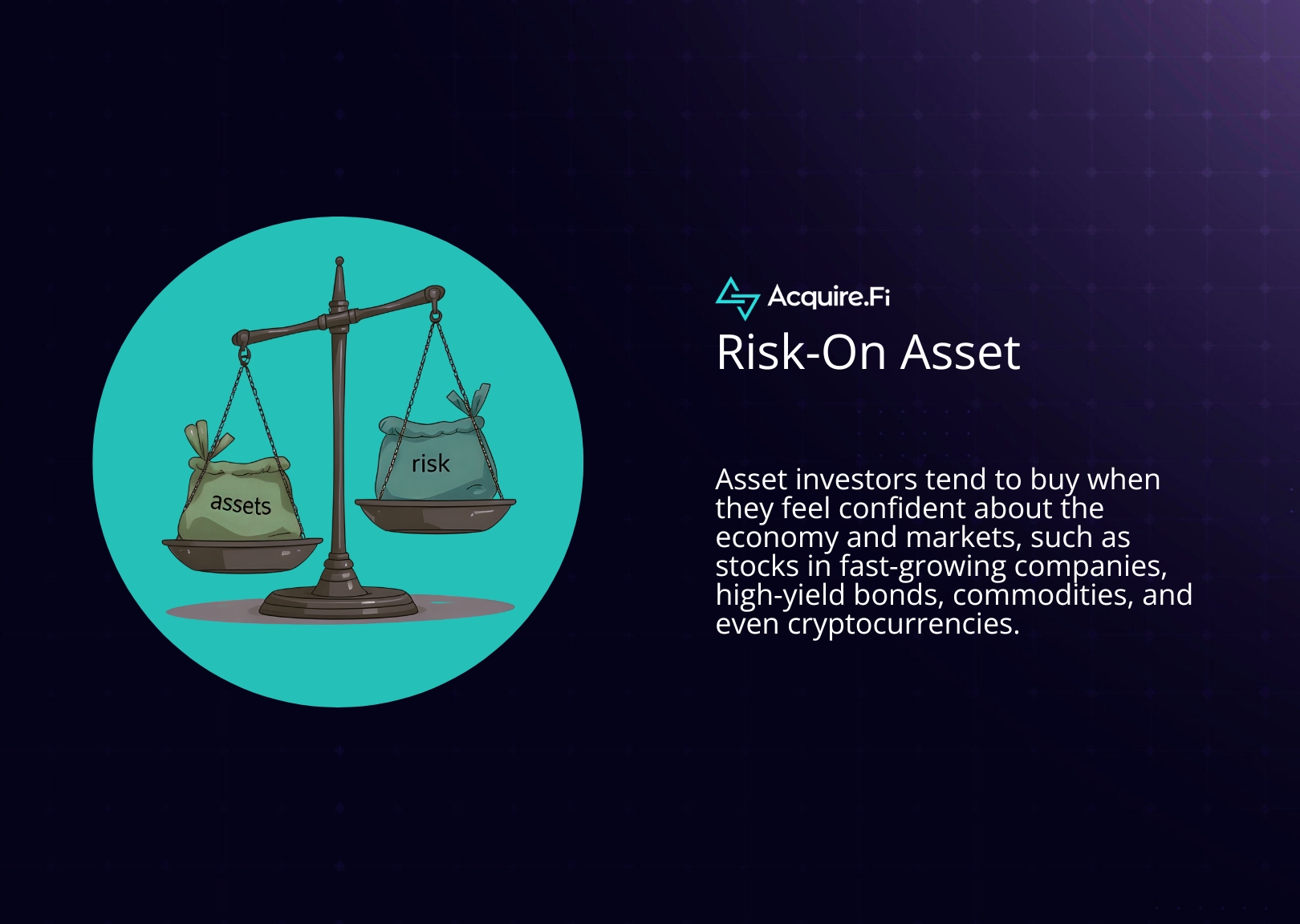Hedge Fund Risk Management: Strategies & Importance
In the world of investing, hedge funds are known for their potential for high returns and high risk. With the potential for significant losses, effective risk management is crucial for hedge funds. In this article, we will explore the importance of risk management in hedge funds, the types of risks faced by hedge funds, key components of hedge fund risk management, and popular hedge fund risk management strategies.
The Importance of Risk Management in Hedge Funds
Risk management is critical in hedge funds because of the complex and high-risk nature of their investments. Hedge funds face a wide range of risks, including market risk, credit risk, operational risk, liquidity risk, and regulatory risk. Effective risk management is essential to mitigate these risks and protect investors' capital.
One of the key benefits of risk management is that it helps hedge funds to achieve stable returns in both up and down markets. By minimizing risk and protecting investors' capital, hedge funds can maintain a consistent performance over time.
Another important aspect of risk management is that it helps hedge funds to identify and manage potential risks before they become major issues. This proactive approach allows hedge funds to take appropriate action to mitigate risks and avoid significant losses.
The Role of Risk Management in Hedge Fund Performance
Research has shown that effective risk management is positively correlated with hedge fund performance. In fact, some studies have found that hedge funds with strong risk management practices outperform those with weaker risk management practices.
One reason for this is that effective risk management allows hedge funds to make more informed investment decisions. By understanding the risks associated with different investments, hedge fund managers can make better decisions about where to allocate capital.
Additionally, effective risk management helps hedge funds to avoid unnecessary losses. By identifying and managing potential risks, hedge funds can avoid making investments that may result in significant losses.
The Consequences of Inadequate Risk Management
Without proper risk management, hedge funds can experience significant losses, reputational damage, and regulatory violations. These consequences can result in diminished investor confidence and a negative impact on the entire industry.
For example, if a hedge fund experiences significant losses due to inadequate risk management, investors may lose confidence in the fund and withdraw their capital. This can have a ripple effect, as other investors may also become hesitant to invest in hedge funds, leading to a decline in the industry as a whole.
In addition, inadequate risk management can lead to reputational damage for hedge funds. If a hedge fund is perceived as being risky or poorly managed, it may struggle to attract new investors or retain existing ones.
Finally, inadequate risk management can also lead to regulatory violations. Hedge funds are subject to a wide range of regulations, and failure to comply with these regulations can result in fines, legal action, and other penalties.
Overall, effective risk management is essential for hedge funds to succeed in a complex and high-risk investment landscape. By minimizing risk and protecting investors' capital, hedge funds can achieve stable returns and maintain investor confidence over time.
Types of Risks Faced by Hedge Funds
Hedge funds are alternative investment vehicles that are designed to generate high returns by using sophisticated investment strategies. These funds are known for their high risk and high reward profile, which makes them attractive to investors who are willing to take on greater risk in exchange for potentially higher returns.
However, with the potential for higher returns comes the potential for greater risk. Hedge funds are exposed to a range of risks, including:
Market Risk
Market risk is the risk of losses due to changes in market conditions, such as fluctuations in stock prices or interest rates. Hedge funds are particularly vulnerable to this type of risk due to their high exposure to the financial markets. In order to manage this risk, hedge funds often use hedging strategies, such as short selling or options trading, to offset potential losses.
Credit Risk
Credit risk is the risk of loss due to the failure of a borrower to repay a loan or debt obligation. Hedge funds are exposed to credit risk through their investments in fixed-income securities and other debt instruments. To manage this risk, hedge funds often conduct extensive credit analysis and may use credit derivatives, such as credit default swaps, to hedge against potential losses.
Operational Risk
Operational risk is the risk of loss resulting from inadequate or failed internal processes, systems, or human error. Hedge funds are exposed to operational risk through their use of complex trading strategies and reliance on technology systems. To manage this risk, hedge funds often have extensive risk management and compliance programs in place, as well as backup systems and disaster recovery plans.
Liquidity Risk
Liquidity risk is the risk of loss due to the inability to sell an investment for a fair price and in a timely manner. Hedge funds face liquidity risk due to their investments in illiquid assets such as private equity and real estate. To manage this risk, hedge funds often maintain a cash buffer and may use lines of credit or other financing arrangements to meet short-term liquidity needs. Here's a quick guide on how real estate hedge fund investors maximize returns.
Regulatory Risk
Regulatory risk is the risk of loss due to changes in regulations or non-compliance with existing regulations. Hedge funds must comply with a complex array of regulations, including securities laws, tax laws, and anti-money laundering laws. To manage this risk, hedge funds often have extensive legal and compliance teams, as well as ongoing training and education programs for employees.
In summary, hedge funds are exposed to a range of risks that require careful management and oversight. By using sophisticated investment strategies and risk management techniques, hedge funds aim to generate high returns while minimizing the impact of potential losses.
Key Components of Hedge Fund Risk Management
Hedge funds are investment vehicles that employ a variety of investment strategies to generate returns for their investors. However, with the potential for high returns comes the potential for high risk. Therefore, effective risk management is crucial for hedge funds to protect their investors' capital and maintain their reputation in the marketplace.
Risk Identification and Assessment
The first step in effective risk management is the identification and assessment of risks. This involves conducting a thorough analysis of the fund's investment strategies, markets, counterparties, and operational processes to identify potential risks. Hedge funds should have a dedicated risk management team that is responsible for identifying and assessing risks on an ongoing basis.
It is important for hedge funds to have a comprehensive understanding of the risks they are exposed to, as well as the potential impact of those risks on their portfolio. By identifying and assessing risks, hedge funds can take proactive steps to mitigate those risks and protect their investors' capital.
Risk Monitoring and Reporting
Ongoing monitoring of risk is crucial to identify changes in market conditions and track the effectiveness of risk management strategies. Hedge funds should establish a regular reporting process to provide timely information to investors and stakeholders. This can include regular risk reports, as well as ad hoc reports in response to significant market events.
Effective risk monitoring and reporting can help hedge funds identify emerging risks and take proactive steps to mitigate those risks. It can also help hedge funds maintain transparency with their investors and build trust in the marketplace.
Risk Mitigation Strategies
Once risks have been identified, hedge funds should implement risk mitigation strategies to reduce their exposure to risk. These can include diversification, hedging with derivatives, risk budgeting, and risk limit setting.
Diversification is a common risk mitigation strategy that involves investing in a variety of asset classes and markets to reduce concentration risk. Hedging with derivatives can also be an effective way to mitigate risk by offsetting potential losses with gains in other areas of the portfolio.
Risk budgeting and risk limit setting are additional risk mitigation strategies that involve setting limits on the amount of risk a hedge fund is willing to take on. This can help hedge funds maintain discipline and avoid taking on excessive risk.
Stress Testing and Scenario Analysis
Stress testing and scenario analysis can help hedge funds identify their vulnerabilities in adverse market conditions. By simulating market shocks or other extreme events, hedge funds can assess their ability to withstand losses and adjust their risk management strategies accordingly.
Stress testing and scenario analysis can also help hedge funds identify potential weaknesses in their risk management processes and make improvements to those processes. This can help hedge funds better prepare for unexpected events and protect their investors' capital.
In conclusion, effective risk management is crucial for hedge funds to protect their investors' capital and maintain their reputation in the marketplace. By identifying and assessing risks, monitoring and reporting on those risks, implementing risk mitigation strategies, and conducting stress testing and scenario analysis, hedge funds can reduce their exposure to risk and improve their overall risk management processes.
Popular Hedge Fund Risk Management Strategies
Diversification and Asset Allocation
Diversification and asset allocation are two essential risk management strategies for hedge funds. By investing in a broad range of asset classes and sectors, hedge funds can reduce their portfolio risk and achieve better returns.
Hedging with Derivatives
Hedging with derivatives is another popular strategy for hedging against market risk. Hedge funds can use options and futures contracts to protect against losses in their underlying investments.
Risk Budgeting and Risk Limits
Risk budgeting and risk limits involve setting specific limits on the amount of risk that a hedge fund can take on. By setting these limits, hedge funds can ensure that they are not taking on too much risk and risking significant losses.
Counterparty Risk Management
Counterparty risk management involves managing the risk of loss resulting from the failure of a counterparty to fulfill their obligations. This can be done through careful due diligence and the use of collateral agreements and other risk-mitigation techniques.
In conclusion, the effective management of risk is crucial for hedge funds to achieve stable returns and protect investor capital. By understanding the types of risks faced by hedge funds and implementing effective risk management strategies, hedge funds can mitigate risk and achieve better performance.















.webp)